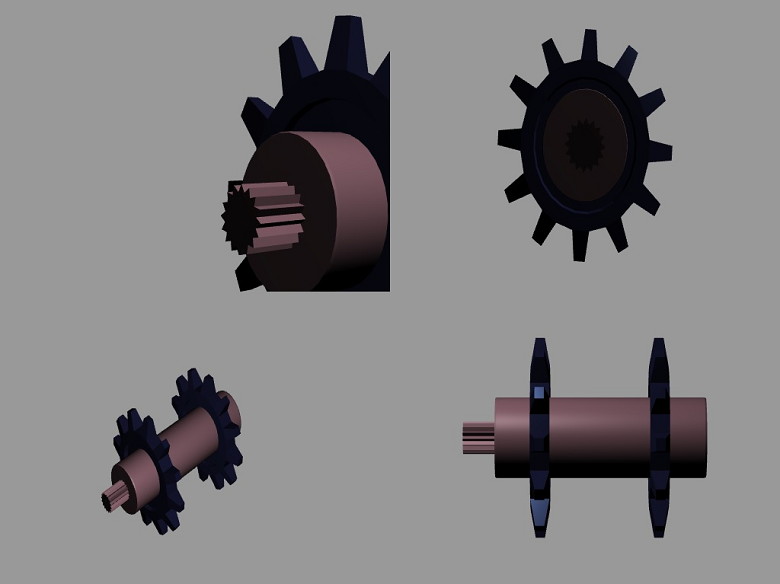QML 范例演示从多个视口渲染场景图形。

多视口 renders a Scenegraph from the point of view of four virtual cameras into the four quadrants of a window. This is a common configuration for 3D CAD or modelling tools or could be adjusted to help with rendering a rear-view mirror in a car racing game or a CCTV camera display.
更多信息,见 多视口 FrameGraph .
要运行范例从 Qt Creator ,打开 Welcome 模式,然后选择范例从 Examples 。更多信息,拜访 构建和运行范例 .
Using the rules defined in Framegraph Rules , we construct five RenderView objects from the FrameGraph:
Viewport { id: mainViewport normalizedRect: Qt.rect(0, 0, 1, 1) ClearBuffers { buffers: ClearBuffers.ColorDepthBuffer clearColor: Qt.rgba(0.6, 0.6, 0.6, 1.0) } Viewport { id: topLeftViewport normalizedRect: Qt.rect(0, 0, 0.5, 0.5) CameraSelector { id: cameraSelectorTopLeftViewport } } Viewport { id: topRightViewport normalizedRect: Qt.rect(0.5, 0, 0.5, 0.5) CameraSelector { id: cameraSelectorTopRightViewport } } Viewport { id: bottomLeftViewport normalizedRect: Qt.rect(0, 0.5, 0.5, 0.5) CameraSelector { id: cameraSelectorBottomLeftViewport } } Viewport { id: bottomRightViewport normalizedRect: Qt.rect(0.5, 0.5, 0.5, 0.5) CameraSelector { id: cameraSelectorBottomRightViewport } } }
The order is important 。若 ClearBuffers node were to be the last instead of the first, this would result in a black screen for the simple reason that everything would be cleared right after having been so carefully rendered. For a similar reason, it could not be used as the root of the FrameGraph as that would result in a call to clear the whole screen for each of our viewports.
Although the declaration order of the FrameGraph is important, Qt 3D is able to process each RenderView in parallel as each RenderView is independent of the others for the purposes of generating a set of RenderCommands to be submitted whilst the RenderView's state is in effect.
Qt 3D uses a task-based approach to parallelism which naturally scales up with the number of available cores. The RenderCommands for the RenderViews can be generated in parallel across many cores, and as long as we take care to submit the RenderViews in the correct order on the dedicated OpenGL submission thread, the resulting scene will be rendered correctly.